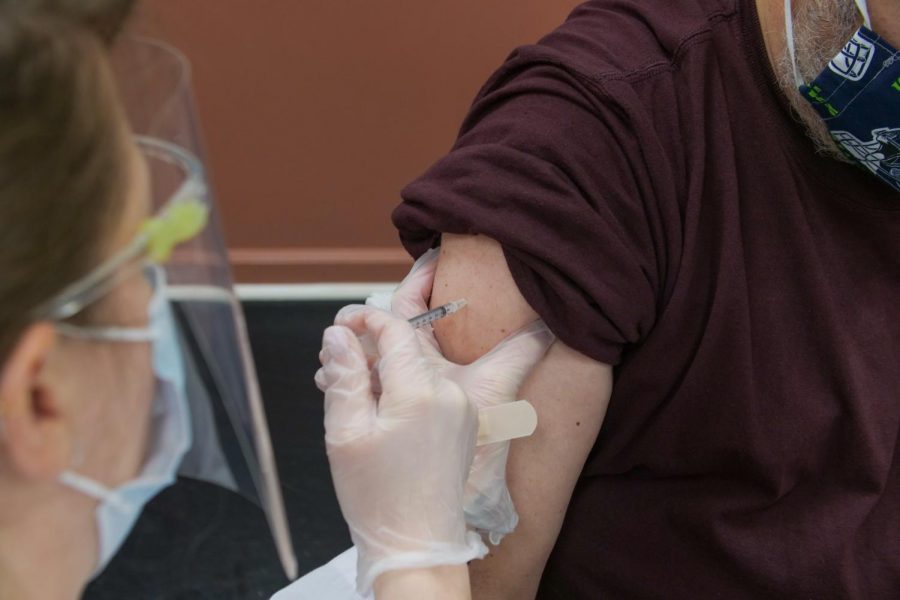Senior Citizens and Others Face Red Tape in Their Search For COVID-19 Vaccines
Older adults who largely live alone and have trouble using the internet are unsure how to find and sign up for COVID-19 vaccine appointments.
With the pandemic halting many in-person interactions, the digital divide between generations becomes even more stark.
It has been over a hundred days since the start of New York City’s vaccination campaign, and 30 percent of adults, including 50 percent of those 65 and older, have received at least one dose of a COVID-19 vaccine. Due to this success, New York City has expanded its vaccine eligibility requirements to include people 16 and older.
As President Biden moved up by two weeks, to April 19, his deadline for states to make every American adult eligible for coronavirus vaccination and more states open up their eligibility requirements, there is still a large population of senior citizens and immunodeficient adults that continue to struggle booking appointments despite being eligible.
The COVID-19 pandemic has only accelerated the reliance of technology, with everything from school to jobs being moved online. A chaotic rollout of the vaccine earlier in the year included confusing registration pages and complicated healthcare websites. Today, the emails, text notifications, and push messages are difficult to navigate for those who need the vaccine the most.
“The vaccine appointment process has been fragmented and confusing, to put it generously… The technological divide has always been present, but when it comes to vaccines – this can be a matter of life and death,” said New York State Assemblyman Jeffrey Dinowitz.
Vaccination programs aimed at vaccinating older adults are dependent on internet knowledge, but nearly 22 million or 42 percent of American seniors lack wireline or broadband access at home.
Those in nursing homes were among the first to get vaccines, but had staff assisting them. Now that vaccines have been made available to the general public, people living alone have had to go through the process without assistance.
One federal agency trying to help is the Administration for Community Living, a division of the United States Department of Health and Human Services that is trying to help seniors book appointments, however their resources have been stretched thin. (Older adults can contact Eldercare Locator for assistance at 1-800-677-1116).
“While it is good that there are phone numbers for all of the vaccine appointment platforms, I have anecdotally heard that these phone lines can often be plagued with long waits if people can get through at all,” said Mr. Dinowitz. “I have personally been pushing vaccine information out as much as I can, including a robocall to people over 60 years old informing them of their eligibility.”
While many seniors feel comfortable surfing the internet, others have found learning a whole new task to be daunting.
Older Adults Technology Services (OATS) has taught over 48,000 how to use the internet since the pandemic began and operates a tech support hotline. (People can reach OATS at 718-360-1707).
Another agency that is helping out is the Area Agencies on Aging that is part of a national aging network funded by the federal government. Different local chapters have been calling seniors and helping them register for vaccine appointments over the phone or in person.
On March 11 President Biden passed a $1.9 trillion COVID-19 relief bill that included the Older Americans Act, which said that programs including nutrition services, home and community-based services, vaccination outreach, social isolation and caregiver support, would receive $1.4 billion in funding.
While more vaccines roll out and programs continue to try and help those who cannot book appointments, many remain trapped.
“The technological divide has always been present, but when it comes to vaccines – this can be a matter of life and death,” said New York State Assemblyman Jeffrey Dinowitz.
Jessica Zheng is a Features Section Editor for 'The Science Survey.' She is passionate about reporting on current events that affect the general population...

